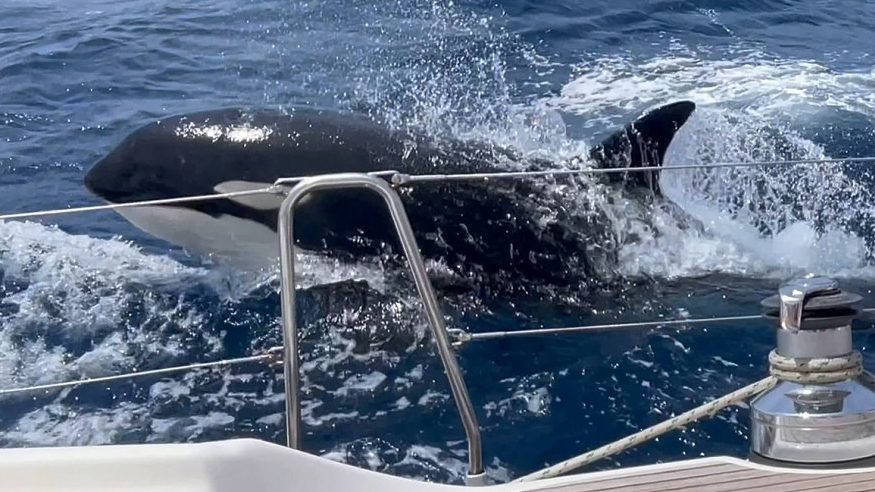Ramming Their Yacht: The First Reported Encounter Like This This Year

Killer Whales Strike Again, Ramming Boats and Leaving Sailors Stranded
In a heart-stopping wildlife encounter that sailors dread, killer whales have once again been reported ramming boats, with devastating consequences. This alarming incident marks the first reported encounter of its kind this year, sending shockwaves through the sailing community.
The crew of a 50-foot sailboat issued a distress call early Sunday, reporting damage to their rudder caused by orcas, commonly known as killer whales. The vessel was rapidly taking on water, prompting a rescue operation. Tragically, despite the crew’s rescue, the boat ultimately sank.
This isn’t an isolated event. The same pod of orcas has been engaging in this behavior since 2020, with over 400 reported encounters and at least five boats sunk as a result. Sailors have coined a term for this dangerous phenomenon: “a text.”
Unraveling the Mystery: Why Are Orcas Targeting Boats?
The motive behind these attacks remains a mystery. While some speculate that it may be a form of playful behavior, marine biologists are baffled by the orcas’ actions. Orcas, the largest members of the dolphin family, can grow up to 32 feet long and weigh up to six tons, living as long as 90 years. The particular pod involved in these incidents is critically endangered and returns to the same area every year in search of bluefin tuna.
Ocean conservation organizations stress that the orcas’ behavior is not believed to be a form of revenge or a deliberate attack on people. Instead, experts theorize that the orcas may be teaching each other how to disable boat rudders, a concerning trend observed over multiple years.
Precautionary Measures and Expert Insights
In response to these incidents, Spanish maritime rescue authorities are advising sailors to avoid the area from April to August, stay close to the coast, and refrain from harming the animals. While the exact reason behind the orcas’ behavior remains elusive, marine biologists note that such behaviors are not uncommon among pods, often emerging and dissipating spontaneously.
As the investigation into these incidents continues, it’s crucial for sailors to remain vigilant and respect the protected status of these magnificent creatures. Despite the challenges posed by these encounters, efforts to understand and mitigate the risks associated with orca interactions are underway.

